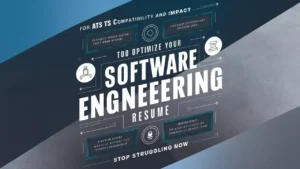Vah Vah! Cuts 150 Jobs: Insights into the Education Startup’s Layoff Decisions
Vah Vah!, a Bengaluru-based startup focused on providing innovative learning solutions, has recently announced a significant layoff of 150 employees, or about 30% of its workforce, as part of a strategic restructuring plan. The news has caught the attention of many in the education sector, as well as the startup community, as it raises questions about the sustainability and competitiveness of this emerging player in a rapidly evolving market.
To understand Vah Vah!’s layoff decision, we need to first trace its roots and growth trajectory. Founded in 2018 by Ravi Kumar, a former executive at Zynga and Flipkart, Vah Vah! aimed to disrupt the traditional classroom model by leveraging technology and gamification to engage students and enhance their learning outcomes. The startup initially offered courses in coding and app development, targeting high school and college students in India and other emerging markets. Vah Vah! soon secured an undisclosed amount of seed funding from prominent investors, including Sequoia Capital and Accel Partners. With this backing, Vah Vah! expanded its course catalog, hired a talented team of developers, designers, and educators, and opened a few regional offices across India.
By all accounts, Vah Vah! was growing fast and gaining attention from both students and educators. It claimed to have served over 10,000 students, partnered with schools and colleges, and secured some prestigious awards in the edtech sector. However, Vah Vah! faced some challenges in scaling its business. The market for digital education in India is highly competitive, with established players like Byju’s and Unacademy dominating the space. Moreover, the COVID-19 pandemic has disrupted the education sector in unprecedented ways, forcing many schools and colleges to switch to online modes that require adapting to new platforms and pedagogies. While some edtech companies benefited from this sudden shift, others struggled to cope with the rising costs and declining revenues.
Vah Vah! seems to fall into the latter category, as its recent layoff indicates. According to the reports from Inc42, the startup had to downsize its operations due to several factors, including the slowdown in enrollment, the cash burn from its expansion plans, and the mismatch between products and market demand. Vah Vah! reportedly had to shut down some of its courses and offices, reduce salaries for remaining employees, and let go of 150 staffers across functions, including content development, sales, and customer support. The layoff has shocked many Vah Vah! employees, as some of them claim that they were not given prior notice or explanations. However, Vah Vah!’s management has released a public statement saying that the layoffs were necessary to “realign our strategy with market realities” and “ensure Vah Vah! stays on a sustainable growth path.”
The layoff decision of Vah Vah! raises some key issues that merit further analysis. First, it shows that even well-funded and innovative startups can struggle to achieve profitability and viability in a crowded and dynamic market, especially if they over-expand or misjudge the customer needs. Second, it highlights the human cost of restructuring, which can affect not only the laid-off employees but also the morale and culture of the remaining staff. Third, it underscores the importance of transparency and communication in such situations, as companies need to explain their decisions clearly and respectfully to the impacted stakeholders, including employees, customers, and investors.
In conclusion, Vah Vah!’s layoff is a cautionary tale for edtech startups and other businesses seeking to disrupt traditional industries. While innovation and ambition are essential for success, they should be balanced with realism and prudence. Layoffs can be a painful but necessary step in the journey of a company, but they should be done with empathy, honesty, and fairness. We hope that Vah Vah! will learn from its experience and emerge stronger and more resilient in the future.


















